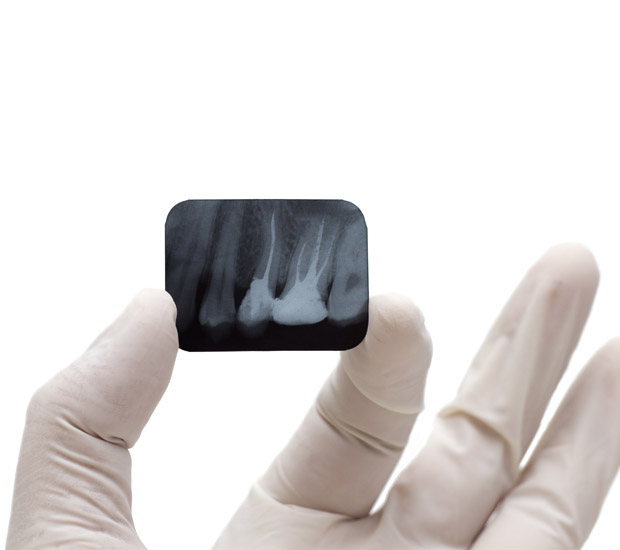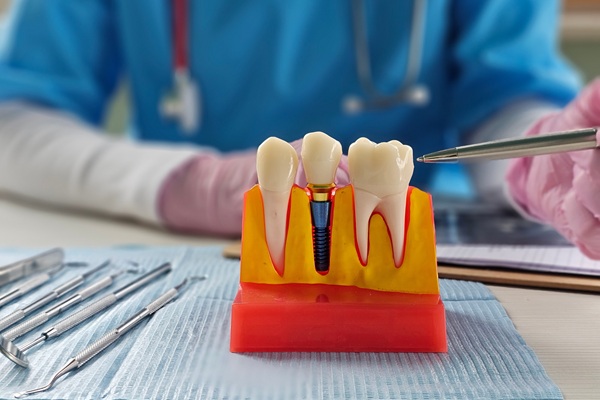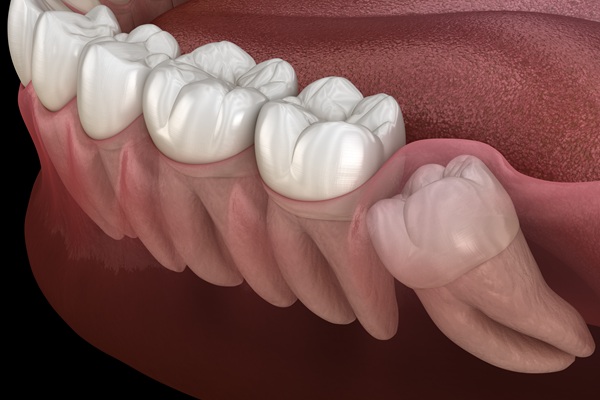Apicoectomy Cos Cob, CT
Apicoectomies are also known as root-end resection or root-end surgeries. Oral surgeons perform these procedures to help preserve a natural tooth. You may have just been told that you need an apicoectomy or come across the term and become curious about what it means.
Read on to learn more about apicoectomies. For more information about specialized dental treatment in your area, our team at Premier Oral Surgery in Cos Cob is here to help. Call us at (203) 347-4046 to learn more.
What is an Apicoectomy?
An apicoectomy is a minimally invasive surgical procedure to remove the root tip and surrounding tissue. Having a visual image of the anatomy of a tooth helps one understand what happens during an apicoectomy. At the top of the tooth is the chewing surface, the part that makes contact with food. Beneath that enamel surface lies the soft, inner layer known as the dental pulp. Further down are the tooth roots, which come to a narrow point and help anchor the tooth in place.
Sometimes, a tooth root can become compromised due to injury or infection. When this happens, an oral surgeon removes the problematic part of the tooth root and the associated structures during an apicoectomy.
The patient will receive a local anesthetic so that they will be comfortable during the procedure. The procedure is done by making a small opening in the gum line to visualize the tooth root and surrounding tissue. Then, an oral surgeon removes any tissue that appears inflamed, including the end of the tooth root. This prevents serious complications and allows the tooth root to be saved.
“Sometimes, a tooth root can become compromised due to injury or infection.”
Reasons for an Apicoectomy and Alternatives
A primary reason for an apicoectomy is to try and remedy a failed root canal. Sometimes it is difficult to remove all of the infectious particles from the inside of the tooth. When this happens, an infection can linger in the dental pulp and spread to the tooth root.
Other reasons why an apicoectomy is recommended include:
- A person is not able to tolerate a minor surgical procedure
- An abscess at the root
- Fracture of the tooth root
- Small calcium deposits in the tooth root can make it difficult to fully clean in a nonsurgical root canal
Alternative procedures, such as total tooth extraction, may be recommended when the damage to the tooth root is too significant to repair with a root-end resection or the jaw bone is infected. After extracting a tooth, a person will likely be given an option for an artificial tooth replacement, such as a dental implant. An oral surgeon will always take one's personal dental and medical history into account when deciding how to treat a dental concern.
“If a tooth is extracted, a person will likely be given an option for an artificial tooth replacement, such as a dental implant.”
Who is a Candidate for an Apicoectomy?
To be a candidate for an apicoectomy, the patient must meet certain criteria. This ensures that each surgery has the highest likelihood of success. Most people who are candidates for an apicoectomy have experienced failed root canals.
To be a root-end resection candidate, a person will need to have a healthy immune system. That way, their body will be able to heal and repair fully. In addition, a person will need to have a salvageable tooth, meaning that once the root end is removed, the tooth has a good chance of being saved. To ensure this, an oral surgeon will also want to make sure the jawbone is not affected by the infection.
“To be a root-end resection candidate, a person will need to have a healthy immune system.”
Check out what others are saying about our dental services on Yelp: Apicoectomy in Cos Cob, CT
Preparation for the Procedure
Before an apicoectomy, it is important to discuss one's complete dental history and medical history with the surgeon. An oral surgeon will especially want to know about daily medications and allergies to medication. The night before an apicoectomy and the day of the procedure, the patient should make sure to follow all pre-op instructions. Luckily, there is usually not much preparation beforehand since apicoectomies are straightforward minor surgical procedures. The most important thing that a patient can do is relax.
“An oral surgeon will especially want to know about daily medications and allergies to medication.”
Apicoectomy Aftercare
After an apicoectomy, it is possible to feel slight soreness and discomfort. A person may also notice swelling. These symptoms are normal following a minor surgical procedure in the mouth.
The oral surgeon will provide aftercare instructions to follow post-apicoectomy. These instructions may include what to eat while healing, managing discomfort, and activities to avoid. It is very important to follow these directions and to call the office with any problems.
“These instructions may include what to eat while healing, managing discomfort, and activities to avoid.”
Questions Answered on This Page
Q. What kind of procedure is an apicoectomy?
Q. Why would a person need an apicoectomy?
Q. What makes a person eligible for an apicoectomy?
Frequently Asked Questions
Q. Can children get apicoectomies?
A. Yes. Children and adults are both eligible for apicoectomies. This procedure can be a beneficial way to preserve a natural tooth while decreasing the risk of consequences from a serious infection.
Q. How safe are apicoectomies?
A. Apicoectomies are very common and minor procedures with generally high success rates. In addition, oral surgeons are the surgical specialists of dentistry and are prepared to deal with any potential complications of surgery should they arise. Finally, the surgeon will carefully asses your candidacy and provide you with comprehensive instructions to aid healing and support the success of the procedure.
Q. What should I do before going into the procedure?
A. This simple procedure requires minimal preparation in most cases. The patient should rinse their mouth with antibacterial mouthwash in addition to brushing and flossing to remove any food particles or film from the teeth. There may be additional instructions specific to your case provided by your oral surgeon.
Q. How long does it take to recover from an apicoectomy?
A. The recovery time varies by individual. However, most people should take between one to two days off before returning to their regular routine. Within the first week, you will likely return for a follow-up to remove stitches if needed and confirm everything is healing okay. Complete healing of the gum tissue takes about three weeks, and in around six months, the jaw bone will have filled the space occupied by the removed root end.
Q. Are apicoectomies painful?
A. Apicoectomies are considered minor surgical procedures and are not associated with much discomfort when compared to other oral surgeries. The area will be numbed to keep discomfort to a minimum. In addition, sedation may be an option. After the procedure, most patients find that any discomfort can be well controlled with over-the-counter pain medication.
Definitions
- Aftercare
- Aftercare refers to the post-procedure professional and personal care of the patient.
- Apicoectomy
- An apicoectomy is a surgery in which the apex or root end of a tooth is removed.
- Exploratory surgery
- Exploratory surgery is a method of investigating a part of the body suspected of disease when diagnosis by noninvasive means is not possible.
- Invasive procedure
- An invasive procedure is a procedure involving some level of entry into a living body by either incision or insertion of an instrument.
- Local anesthesia
- A numbing agent oral surgeons use to numb the treatment area before a procedure.
- Minimally invasive surgery
- Minimally invasive surgery is a type of surgery that, while invasive, aims to minimize trauma to the body.
- Non-invasive procedure
- A non-invasive procedure is a health intervention carried out without the need for incisions, removal of tissue, or insertion of an instrument into the body.
- Oral surgeon
- A dental specialist in the area of oral and maxillofacial surgical procedures.
- Tooth extraction
- A procedure in which a tooth is completely removed from its socket.
- Local anesthesia
- A numbing agent oral surgeons use to numb the treatment area before a procedure.
Call Us Today
Premier Oral Surgery is an oral surgeon serving Cos Cob and the surrounding area. Call our team today at (203) 347-4046. We can help determine if an apicoectomy is a safe and effective option for you.
Helpful Related Links
- American Dental Association (ADA). Glossary of Dental Clinical Terms. 2024
- American Academy of Cosmetic Dentistry® (AACD). Home Page. 2024
- American Academy of Maxillofacial Prosthetics. American Academy of Maxillofacial Prosthetics. 2024
- American Association of Oral and Maxillofacial Surgeons. American Association of Oral and Maxillofacial Surgeons. 2024
- American College of Oral and Maxillofacial Surgery. American College of Oral and Maxillofacial Surgery. 2024
- National Cancer Institute (NCI). National Cancer Institute (NCI). 2024
- WebMD. WebMD’s Oral Care Guide. 2024
About our business and website security
- Premier Oral Surgery & Implantology Center was established in 2024.
- We accept the following payment methods: American Express, Cash, Check, Discover, MasterCard, and Visa
- We serve patients from the following counties: Fairfield County
- We serve patients from the following cities: Cos Cob, Greenwich, Stamford, Darien, and Fairview
- National Provider Identifier Database (1366671281). View NPI Registry Information
- Healthgrades. View Background Information and Reviews
- Norton Safe Web. View Details
- Trend Micro Site Safety Center. View Details
Back to top of Apicoectomy





